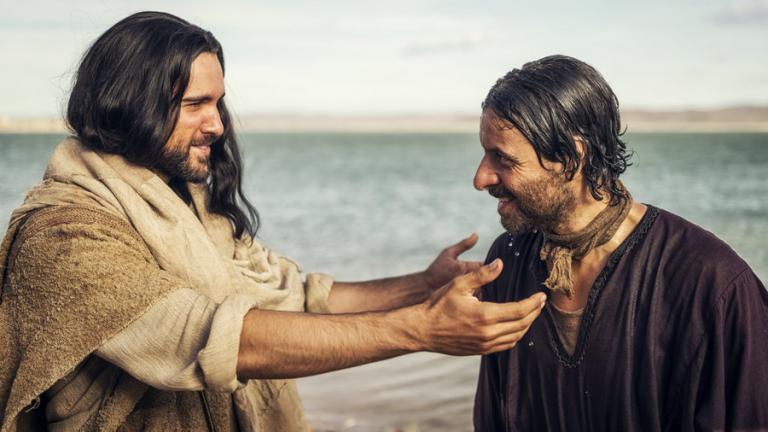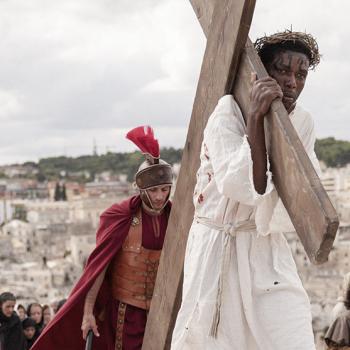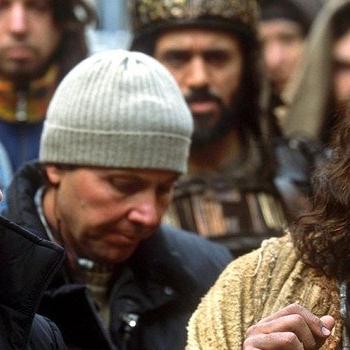 Over the weekend thousands of Canadians flocked to movie theatres to see The Passion of the Christ. Peter Chattaway has seen Mel Gibson’s movie on the torture and crucifixion of Jesus…twice. He reviews movies for a national paper called ChristianWeek and contributes to the American website ChristianityToday.com. On Commentary he says he doesn’t think Gibson’s movie rises above the violence and evil it depicts.
Over the weekend thousands of Canadians flocked to movie theatres to see The Passion of the Christ. Peter Chattaway has seen Mel Gibson’s movie on the torture and crucifixion of Jesus…twice. He reviews movies for a national paper called ChristianWeek and contributes to the American website ChristianityToday.com. On Commentary he says he doesn’t think Gibson’s movie rises above the violence and evil it depicts.
If you showed an R-rated film full of extremely graphic violence to a regular movie critic and a conservative pastor, who do you think would be more likely to complain about the blood and gore? You would probably say the pastor, but Mel Gibson has changed all that with his new movie The Passion of the Christ.
Already many film critics have said the movie is too obsessed with the physical torture and execution of Jesus. But many pastors and priests have come to Mel Gibson’s defense. They say the blood and gore is permissible, even necessary; they say we need to see what the death of Jesus was “really” like.
But this isn’t the first Jesus movie that has tried to be more bloody and realistic. Sixteen years ago, more liberal Christians made pretty much the exact same argument in defense of Martin Scorsese’s The Last Temptation of Christ.
Moreover, we live in a culture that is already saturated with gory, violent movies, and many of them are handsomely rewarded with Academy awards and box office success. Mel Gibson himself helped start this trend nine years ago with his medieval revenge epic Braveheart, and since then, we have had several ultra-graphic war movies: Saving Private Ryan, Black Hawk Down and Gladiator.
More important than the film’s obsession with violence may be its obsession with evil. There are no angels in Mel Gibson’s movie, as there are in the gospels; there are only demons. And in this, too, The Passion of the Christ is very much a product of its own culture.
Actors and writers have known for years that it is easier and more fun to play the villain than the hero. What’s more, as Thomas Hibbs argues in his book on nihilism in popular culture, we live in a time when people are not convinced the world has any meaning any more. Films like The Exorcist, Seven, and Silence of the Lambs have tried to rediscover a sense of meaning through the back door by boldly proclaiming the existence of evil. If we can believe there is something truly wrong with the evil portrayed in these films, then maybe we can believe in something good, too.
There is some merit to this approach, but is that enough for a movie about a man revered by many Christians as the Son of God? Did Jesus come into this world simply to convince us that evil really exists? If we don’t have an equally compelling sense of what it means to be good, then at worst, our depictions of evil may become laughable, especially as they get more and more extreme. And at best, instead of waking us up, films like The Passion of the Christ may end up desensitizing us to violence and evil even more.
The Passion of the Christ aims at something better than a fascination with evil, but I’m not sure it gets there.
For Commentary, I’m Peter Chattaway in Vancouver.
— This is a transcript of a commentary I recorded for CBC Radio.












